Many people have been following the progress of the legislation introduced in the House of Representatives as the Stop Online Privacy Act (SOPA) pretty closely for some time now. Today’s protests by popular websites Wikipedia and Google, however, brought much more attention to the legislation. Wikipedia blocked access to its site content for 24 hours and Google blocked out its brand name.
So, what is SOPA? and why is this all relevant?
Currently, the Digital Millennium Copyright Act of 1998 (DMCA) affords internet sites that allow individual users to post content without restriction certain protections against claims for copyright infringement based on that individual user’s content. In order words, an internet site, if it follows specific steps laid out in the DMCA (see http://www.copyright.gov/legislation/pl105-304.pdf) would be protected against copyright infringement claims from a copyright owner. If the copyright owner seeks recovery from the copyright infringement and the internet site is protected under the DMCA, the copyright owner would have seek that recovery from the user who posted the infringing content.
Now, if SOPA, as it is currently drafted, goes into effect, the US Department of Justice and copyright owners may have the right to seek court orders against the internet sites that “enable or facilitate” copyright infringement. This may reflect a change in the protection that internet sites have enjoyed against copyright infringement under the DMCA for more than a decade.
What do you think?

